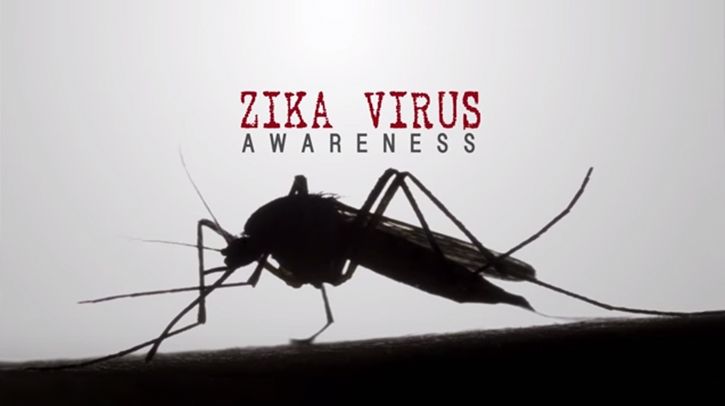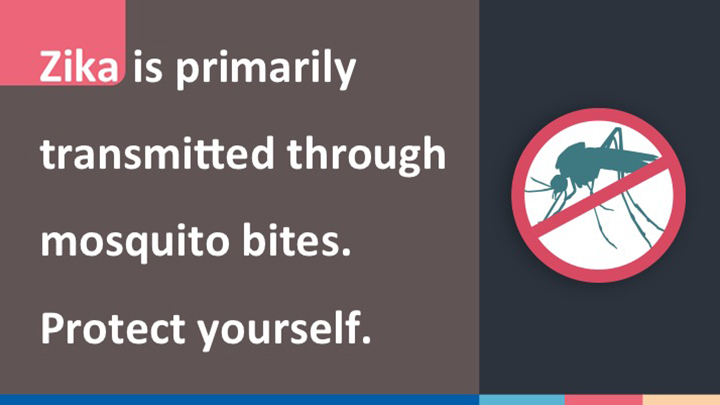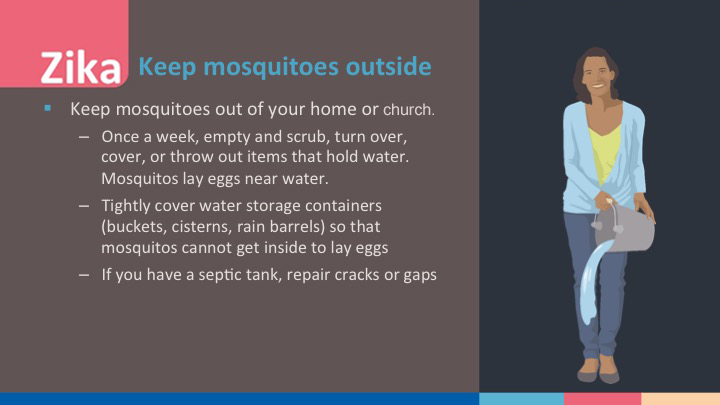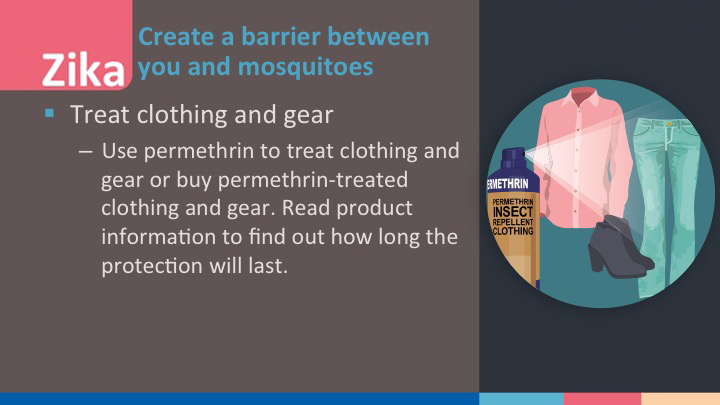What You Can Do: Four Key Prevention Messages from the Zika Taskforce

By Katie Mears, with members of the Zika Taskforce
Across the US, Episcopalians are gearing up for summer activities. Common questions include: what’s the theme for this year’s summer day camp? Who are we partnering with on the summer meal program for kids who would normally eat at school? Will this be the year we finally clean out the church office?
But this summer, with concerns about the Zika virus moving north into the continental US, new questions are popping up. Responding to these concerns, Episcopal Relief & Development assembled a taskforce of experts in public health and safety, disaster response, church programs and communications to sort through the information floating around about the Zika virus, and to create a resource that would help Episcopal churches in the United States to respond appropriately.
Download the resource here: English Spanish French Kreyol
The overall message we want people to know is that while Zika is a concern for women who are pregnant or could become pregnant, most people who are infected with Zika do not become sick, and there is a low chance that we would see an epidemic in the continental United States.
As long as normal mosquito bite prevention is practiced (protecting skin with clothing or repellent, using window screens or mosquito nets), there is no reason to cancel summer camp or mission trip plans – unless you are part of a couple that is currently pregnant or planning to be.
For more insight on what communities, churches and individuals can do to share accurate information and practice appropriate Zika prevention, here are some key takeaway messages from members of our taskforce. You can also find out more by visiting the Zika page on our website.
1. “We are learning more every day about how Zika virus causes disease. At the moment, the greatest risk is for women who are pregnant or planning to get pregnant who either live in or travel to areas where the virus is endemic. Unlike other mosquito-borne diseases, Zika virus can also be transmitted sexually, so couples should also practice safe sex if either partner has recently traveled to an area where Zika virus is endemic, or had unprotected sexual contact with someone who has. There is no reason to believe that there will be large mosquito-borne outbreaks of Zika virus in the US anytime soon. There may be small localized outbreaks if a sufficiently large number of infected individuals is present in one location, but this will likely be transient. The US has efficient mosquito control programs in most urban areas, which will help prevent outbreaks. A vaccine to protect against Zika virus should be relatively straight-forward but will still take 5-10 years. Remember that significant health effects from Zika infections are rare – most infected individuals have no symptoms and those that have symptoms usually develop a fever and rash that last a few days to a week. The major concern is infection of the developing fetus. Reasonable precautions will help protect the fetus from infection and that should be our primary goal.”
Dr. John Clements is Professor and Chair of the Department of Microbiology and Immunology at Tulane University School of Medicine in New Orleans.
2. “Outreach to communities with accurate information is crucial. Some community agencies provide mosquito control as a service to the public and may apply pesticides, some directly to water to control mosquito larvae, while others are sprayed to control adult mosquitoes. Some agencies trap mosquitoes and report their types and numbers to state and/or federal agencies and a limited number of state and local agencies also actively test for mosquito borne illnesses.
Individuals can do many things to reduce the number of mosquitos in their community and prevent bites, including removing any containers with standing water, maintaining swimming pools, installing/repairing screens, using insecticides, reporting abandoned pools to local health departments and organizing neighborhood clean-up days to tackle these tasks on a larger scale.”
Tony Powell is a registered sanitarian with a local Health Department in the Diocese of Lexington, Kentucky. He has participated in West Nile Virus mosquito surveillance and H1N1 vaccination campaigns, public health and faith-based disaster response during Hurricane Katrina as well as the 2010 Haiti earthquake.
3. “It is important that people have the facts about Zika virus so that they can make informed decisions about mission and ministry this summer and beyond. Churches can move beyond the media hype by offering real information so that they and their members can continue to minister to people in the community and in the world sensibly and with effective measures. It is necessary to balance good works with common sense so that those who are in need do not get left behind.”
Sharon Tillman is the Director of Diocesan Initiatives at the Claggett Center, camp and conference center of the Episcopal Diocese of Maryland, where she served as Director of Communications.
4. “Being well informed and using the most up-to-date information available when discussing Zika is one of the first steps we all need to take in order to address our church members’ potential concerns. Ensuring that the information used is from reliable resources, such as the Centers for Disease Control and Episcopal Relief & Development, and encouraging everyone to learn from that information, pay attention to the recommendations, put the appropriate actions into place and not overreact, will help everyone to go out and enjoy and care for God’s Kingdom!”
Elizabeth (Jay) Jordan is a PhD nurse in the Diocese of Massachusetts, and is in the process of becoming a deacon (expected June 2016).
—————————————–

Katie Mears is the Director, US Disaster Preparedness & Response at Episcopal Relief & Development.
Special thanks to all of our task force members:Keith Adams (New Jersey), John D. Clements, Ph.D. (Louisiana), James Cockey, MD (Easton), Mike Corey (Connecticut), Elizabeth Jordan, R.N., Ph.D. (Massachusetts), Tim Kingsley (Minnesota), The Rev. Karl Lusk (Kentucky), Tony Powell (Lexington), Dick Raub (Oregon), Ed Robertson (Central Pennsylvania), The Rev. Deacon Mike Sircy (Southwest Florida), Sharon Tillman (Maryland)
For the latest information on Zika virus, visit the CDC’s webpage.
Images from the CDC.





